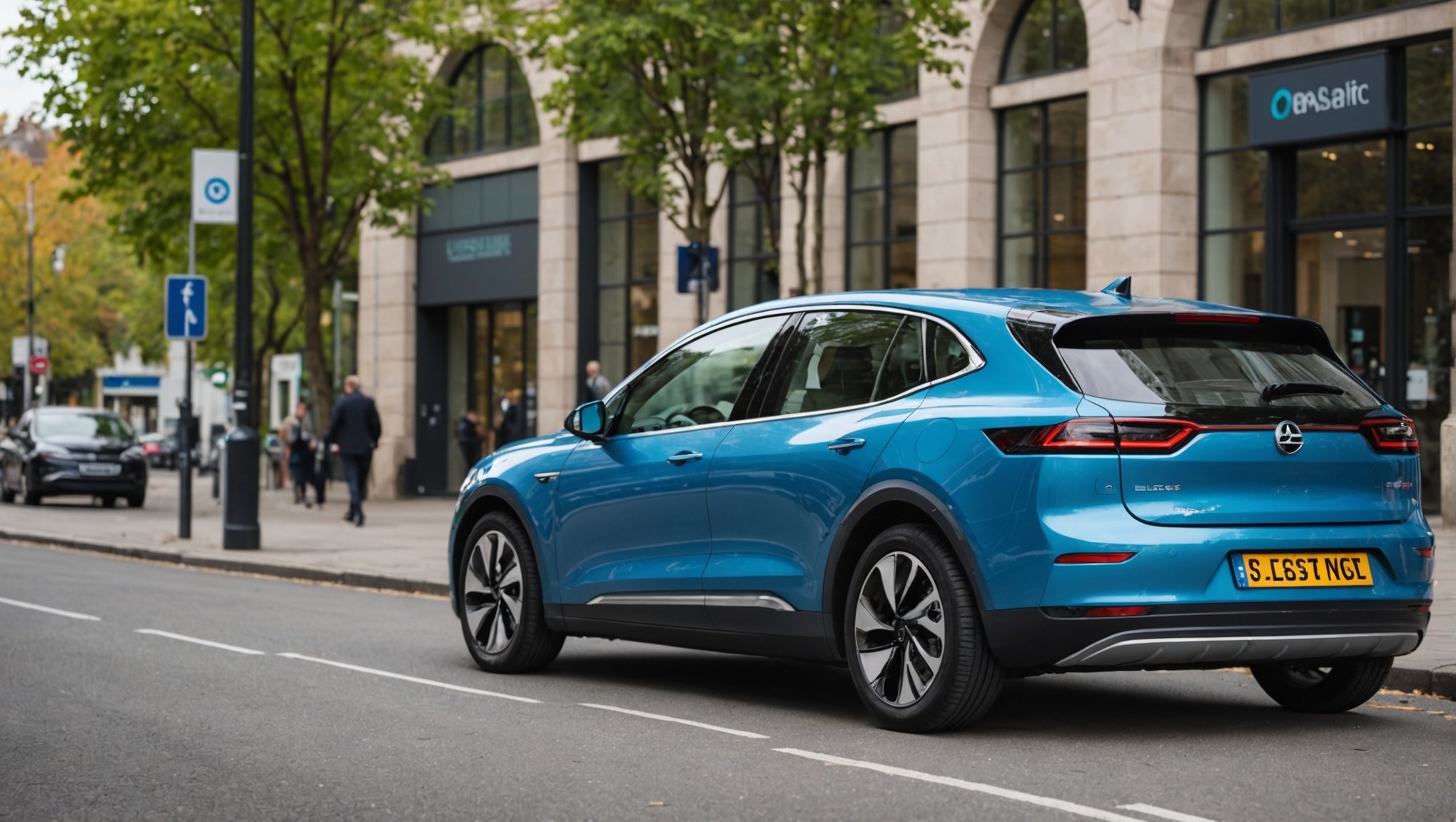Understanding the Benefits of Pre-Owned Electric Vehicles
Choosing pre-owned electric vehicles offers substantial cost savings over new models. These savings manifest in lower initial prices and reduced depreciation costs, making them financially appealing. Additionally, maintenance expenses are often lower due to fewer moving parts, such as those found in gasoline engines.
The environmental benefits of opting for electric vehicles further enhance their appeal. By reducing dependency on fossil fuels, electric vehicles contribute significantly to decreasing emissions, helping create a cleaner atmosphere. Moreover, the energy used to power EVs can be derived from renewable sources, further diminishing their carbon footprint.
Additional reading : How can you appeal against a speeding fine in the UK?
Another attractive aspect is the availability of government incentives for EVs. Various schemes and rebates are frequently offered to encourage the adoption of electric vehicles, easing the financial burden for potential buyers. These incentives can be in the form of tax credits, reduced registration fees, or even direct rebates.
In summary, going for a pre-owned electric vehicle encompasses not only personal cost savings but also environmental and societal advantages. This makes them an intelligent choice for budget-conscious, eco-friendly consumers looking to make a practical yet impactful decision.
Also read : Mastering Vehicle Cost Assessment: Your Ultimate Guide to Total Cost of Ownership in the UK
Key Factors to Consider
When it comes to buying pre-owned EVs, there are several essential checks that need careful consideration to ensure a good purchase. These checks help in understanding the condition and value of the vehicle.
Battery Health Assessment
The battery condition is paramount when purchasing a pre-owned EV. It’s important to evaluate the battery’s remaining life, as it directly impacts the vehicle’s performance and range. A reliable method to assess this is accessing the EV’s onboard diagnostic system, which gives insights into battery capacity and potential degradation. This data can often be interpreted with the help of a technician or by using specific applications designed to evaluate EV batteries.
Review of Service History
A comprehensive service history is crucial to understanding an EV’s past. It provides detailed records of maintenance and repairs, which can indicate how well the EV has been cared for. Look for regular servicing intervals, completed recalls, and notes on any major repairs. Be cautious of missing records or irregular maintenance, as these could be red flags indicating potential future issues.
Charging Options and Compatibility
Exploring charging types is essential. Assessing if the EV is compatible with home charging setups, public stations, or rapid chargers will influence your daily operations and convenience. Ensure the car’s charger type matches your regular charging options to avoid range limitations, which could affect your commuting and travel habits.
Warranty and Support Considerations
Navigating the warranty landscape for electric vehicles (EVs) can be complex but rewarding, particularly for those new to the technology. Understanding both manufacturer and third-party warranties is crucial. Manufacturer warranties typically cover the vehicle’s powertrain and battery for a specified number of years or miles. This protection is essential, as the battery is a significant component of an EV.
Support options vary, with manufacturers often offering comprehensive after-sales service packages. These packages may include routine maintenance, roadside assistance, and software updates. Such support ensures that EV owners receive the help they need when issues arise.
For pre-owned EV purchases, the importance of extended warranties cannot be overstated. Extended warranties can extend coverage beyond the manufacturer’s original terms, providing peace of mind for buyers concerned about potential repairs. These warranties cover major components and often provide additional benefits such as rental car coverage during service periods.
In evaluating warranties and support, consider these key aspects:
- The coverage period and mileage limits.
- Specific components under warranty, like the battery and drivetrain.
- Available services under after-sales packages, like software updates and roadside assistance.
After-sales support plays a pivotal role in the long-term satisfaction of EV ownership. By understanding warranty terms and support options, you can make informed decisions and enjoy a more secure ownership experience.
Potential Issues in Pre-Owned Electric Vehicles
When considering a pre-owned electric vehicle (EV), being aware of potential EV pitfalls helps guide informed decisions. Understanding common issues in used EVs is essential for buyers.
Common Mechanical Issues
One of the prevalent EV pitfalls pertains to mechanical issues. Aged batteries or worn-out motors are common culprits. Signs of battery degradation include a reduced driving range and longer charging times. Beware of unusual noises or vibrations during drives, potentially indicating motor concerns. If mechanical problems are diagnosed, repair costs can vary widely. Battery replacements remain a significant expense. Buyers should prioritize inspecting these components before purchase to prevent unexpected costs.
Software and Technology Updates
Keeping the EV software current is crucial. Outdated technology can lead to performance lags or reduced functionality. Ensuring the car’s software is updated can fix bugs and improve efficiency. Buyers should inquire whether the EV has received recent updates and check manufacturer logs for the latest versions. It’s equally vital to test the car’s tech features to ensure seamless operation.
Recalling Vehicles
Recall status should never be overlooked. Understanding the recall process allows buyers to address safety issues. Checking an EV’s recall history provides insights into past issues and repairs needed. Many manufacturer websites offer easy access to recall information by entering the vehicle’s identification number (VIN).
Resources for Further Research
To confidently delve into electric vehicle (EV) research, it’s crucial to tap into the right resources. Online forums and websites are bustling with discussions, offering insights from EV enthusiasts and experts. Platforms like InsideEVs and Electrek feature comprehensive reviews and analyses of the latest vehicles, keeping you informed about technological advancements and market trends.
Using online tools tailored for assessing vehicle history can immensely aid in evaluating the background of an EV you might be interested in. Websites such as Carfax and AutoCheck provide detailed reports on vehicle history, giving you peace of mind regarding the maintenance and previous ownership of second-hand EVs. These tools are invaluable resources for any proactive buyer conducting thorough research.
Government resources also offer vital information on EV ownership. For example, official government sites may provide guidelines on incentives, rebates, and tax credits available to EV owners. They often offer up-to-date information concerning purchase subsidies and state-specific benefits, which can substantially impact the cost of EV ownership. Such information empowers potential buyers to make informed decisions with confidence, focusing on the long-term benefits and financial implications of owning an electric vehicle.
Arming yourself with the right resources ensures that your approach to EV buying is as informed and thorough as possible.
















